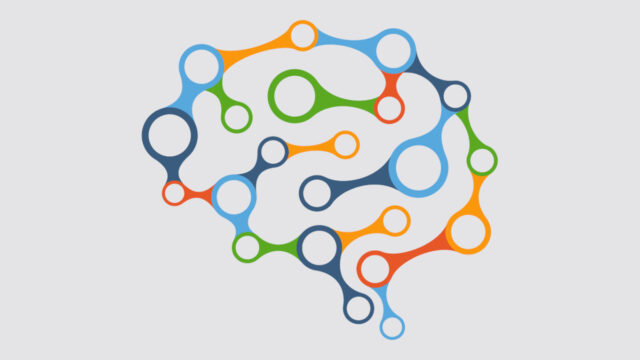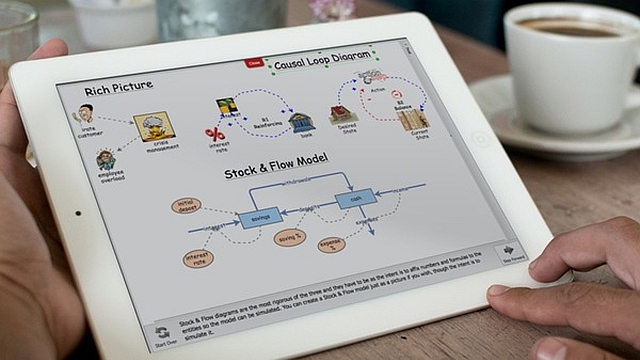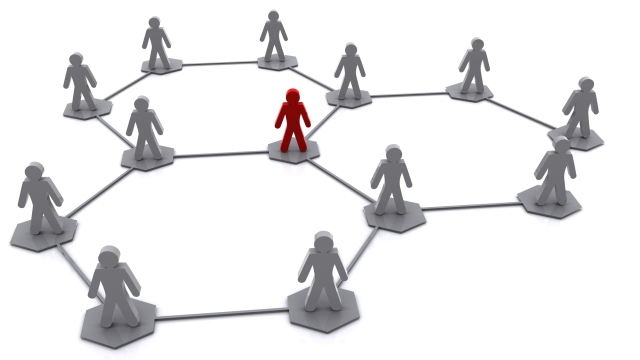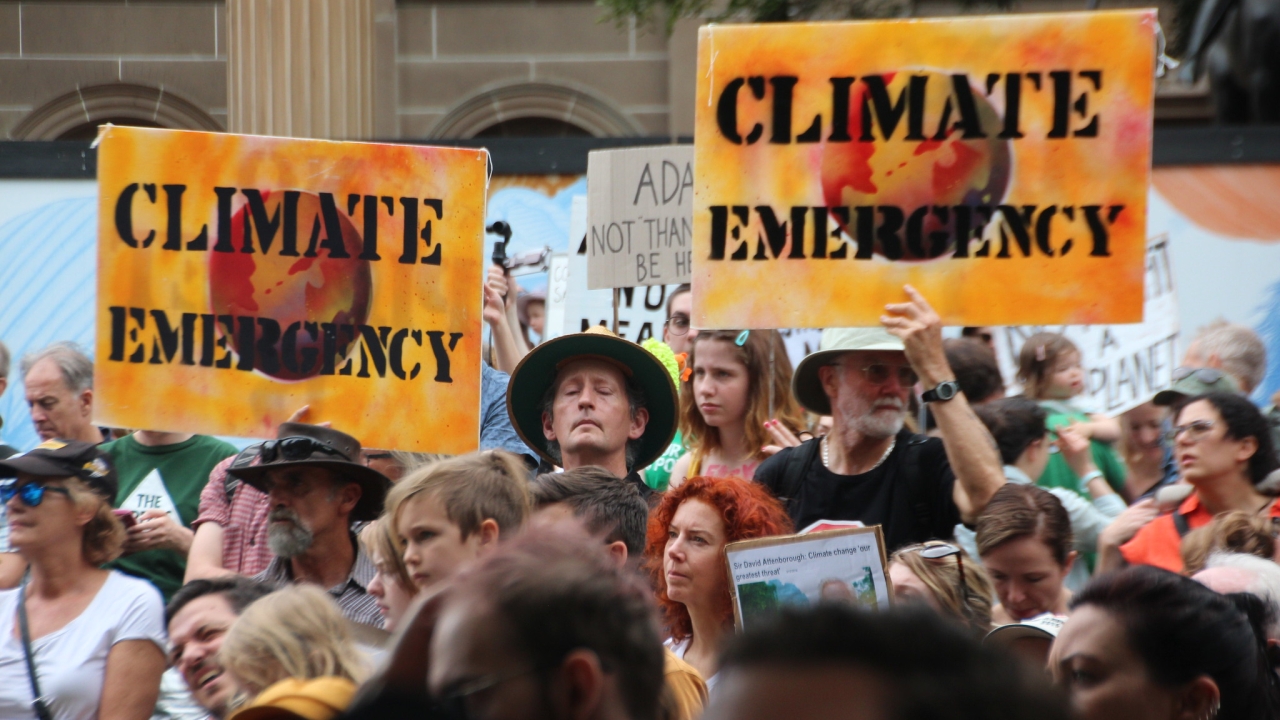
Taking responsibility for complexity (section 3.1.3): Convening and boundary management
This article is part of section 3.1 of a series of articles featuring the ODI Working Paper Taking responsibility for complexity: How implementation can achieve results in the face of complex problems.
Self-organised responses may face collective action problems, so one priority for intervention is to facilitate processes that build trust and collaboration between key actors. One priority may be to broker deliberation and negotiation at different scales in order to catalyse collaborative efforts. A range of work suggests that deliberation (as described above) can play a key role in enabling and building social capital and catalysing collective action1.
Implementing agencies will need to work as stewards of these processes, in a way that seeks to maintain public trust2. A number of factors must be taken into consideration in order to enable the kinds of social and institutional learning required. One key issue relates to who is included. Work on multi-scale problems suggests it is crucial to ensure the representation of all actors with an interest in the task at that level3,4. This is about who bears the costs and benefits of a situation or proposed action, as well as where with the ability to influence it lies. The literature on NRM suggests that agreement is likely to be needed between a wide variety of users of the resource, particularly actors who have a high level of dependence on it and those with an overlap between user group and residential location. It is also crucial that the process be conducted in the spirit of true collaboration. Trust can be fragile, and social capital cannot be formed where one actor is using a deliberative process as a way of furthering her/his own goals, aiming to build trust just for this reason, regardless of the knowledge or priorities of others (as is common with the ‘instrumental’ view of participatory processes, where ownership is seen as a means to the end of implementing one actor’s pre-decided goals).
Mechanisms for conflict resolution are also likely to be important, and mediation should be a priority for interventions. Many complex issues entail conflicts of interest between different actors. If managed intelligently, these can be a positive force for change in societies, as actors and norms of behaviour can reorganise into more sustainable and equitable patterns5.
Effective decentralised and emergent action requires actors to be engaged in multidirectional discussion and learning with peers and with different knowledge communities. It is key to have structures and processes that underpin communication within and between different levels of society, so actors are able to gain the information and knowledge required to adapt to changing circumstances and to learn about addressing complex problems. It will be important to improve collective information about issues, problems or resources to be managed6. The cost of knowledge (e.g. transaction costs in searching for information, finding partners in collective action, building networks and social capital) is a key factor in the political economy of cross-scale linkages7.
Sustainable communication and learning may require the continuous management of ‘intermediary functions.’ ODI research on the challenge of linking science and policy in developing countries has found very strong demand for the brokerage of information and knowledge between the scientific community and the policy community, in order to overcome problems such as the mismatch of timescales and incentives on either side of the boundary and a tension between democratised knowledge and specialised expertise8. This is also a matter of mediating between different scales, as knowledge is stored, used and perceived differently at different levels9. Recent research into these intermediary functions provides the following categories of function: informing, consulting, matchmaking, engaging, collaborating and building capacity 10,11.
Intermediary organisations that focus explicitly on intermediary (or ‘bridging’) functions between different arenas, levels or scales are able to address this problem, and may well represent the most sustainable way of doing so. In a number of different areas, intermediaries can facilitate decentralised action by promoting communication and ownership. For example, scientific intermediaries are seen as central to meeting the challenges of climate change adaptation (see Box 6). In agricultural development, intermediary functions (carried out by organisations such as non-governmental organisations (NGOs) and applied research institutes) can play a key role in linking ‘supply’ and ‘demand’ for knowledge (represented crudely by researchers and farmers, respectively), finding out what producers and their customers want and searching through the stocks of knowledge to find what best meets the need12.
Box 6: The need for intermediaries to improve action on climate change adaptation
This is the message emerging from work on mainstreaming climate change adaptation (CCA), for example. Rather than risking National Programmes of Action (NAPAs)13 becoming a process of governments consulting a small pool of (often foreign) ‘experts’ in a technocratic exercise, there are calls for organisations and processes that ensure a broad consultation on the issues. Intermediaries bridging climate science into policy debates are needed to build ownership and embed NAPAs within policy processes by ensuring that dialogues include a broad range of actors and interest groups, yet are nonetheless sufficiently informed by the science on climate change and its impacts.
Source: H. Jones et al. (2009)14.
Next part (section 3.1.4): Building adaptive capacity.
See also these related series:
- Exploring the science of complexity
- Planning and strategy development in the face of complexity
- Managing in the face of complexity.
Article source: Jones, H. (2011). Taking responsibility for complexity: How implementation can achieve results in the face of complex problems. Overseas Development Institute (ODI) Working Paper 330. London: ODI. (https://www.odi.org/sites/odi.org.uk/files/odi-assets/publications-opinion-files/6485.pdf). Republished under CC BY-NC-ND 4.0 in accordance with the Terms and conditions of the ODI website.
References and notes:
- Swanson, D. and Bhadwal, S. (eds) (2009). Creating Adaptive Policies: A Guide for Policy Making in an Uncertain World. Winnipeg and Ottawa: IISD and IDRC. ↩
- Daniels, S. and Walker, G. (1996). ‘Collaborative learning: Improving public deliberation in ecosystem-based management’, Environmental Impact Assessment Review, 16(2): 71–102. ↩
- Marshall, G. (2008). ‘Nesting, Subsidiarity, and Community-based Environmental Governance beyond the Local Level.’ International Journal of the Commons 2(1): 75-97. ↩
- McKean, M. (2002). ‘Nesting Institutions for common-pool Resource Systems.’ In Graham, J., Reeve, I. and Brunckhorst, D. (eds) Proceedings of the 2nd International Symposium on Landscape Futures. Armidale, 4-6 December 2001. ↩
- Warner, M. (2001). ‘Complex Problems … Negotiated Solutions: The Practical Applications of Chaos and Complexity Theory to Community-based Natural Resource Management.’ Working Paper 146. London: ODI. ↩
- Ostrom, E. (2010). ‘A Polycentric Approach for Coping with Climate Change.’ Policy Research Working Paper 5095. Washington, DC: World Bank. ↩
- Adger, W., Brown, L. and Tompkins, E. (2005). ‘The Political Economy of Cross-scale Networks in Resource Co-management.’ Ecology and Society 10(2): 9. ↩
- Jones, N., Jones, H. and Walsh, C. (2008) ‘Political Science? Strengthening Science–Policy Dialogue in Developing Countries.’ Working Paper 294. London: ODI. ↩
- Cash, D., Clark, W., Alcock, F., Dickson, N., Eckley, N., Guston, D., Jager, J. and Mitchell, R. (2003). ‘Knowledge Systems for Sustainable Development’, The Proceedings of the National Academy of Sciences 100(14): 8086–91. ↩
- Informing – disseminating content to targeted decision-makers and decision influencers; Consulting – seeking out known experts to advise on problems that have been specified by the user of knowledge; identifying who would benefit from expert advice, what advice is needed and the most appropriate forms of communication; Matchmaking – introducing each side to people or organisations they would not otherwise meet; identifying the expertise needed, who can provide it and how best to foster communications; Engaging – helping frame the discussions; ensuring all appropriate actors are involved for the life of the decision-making process; Collaborating – helping both sides of the discussion jointly frame the process and negotiate the substance of the issue to address a particular problem; Building capacity – stewarding long-term relationships; fostering organisational learning; co-producing knowledge. ↩
- Michaels, S. (2009) ‘Matching Knowledge Brokering Strategies to Environmental Policy Problems and Settings.’ Environmental Science and Policy 12(7): 994-1011. ↩
- Arnold, E. and Bell, M. (2001) ‘Some New Ideas about Research for Development.’ In Danish Ministry of Foreign Affairs Partnership at the Leading Edge: A Danish Vision for Knowledge, Research and Development. Copenhagen: Danish Ministry of Foreign Affairs. ↩
- Currently being made in the mould of poverty reduction strategy papers (PRSPs) as a mechanism for incorporating CCA into domestic policy processes in Southern countries. ↩
- Jones, H., Jones, N., Walker, D. and Walsh, C. (2009). ‘Strengthening Science–Policy Dialogue in Developing Countries: A Priority for Climate Change Adaptation.’ Background Note. London: ODI. ↩





